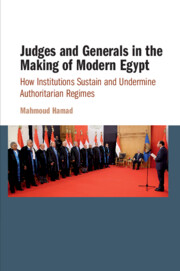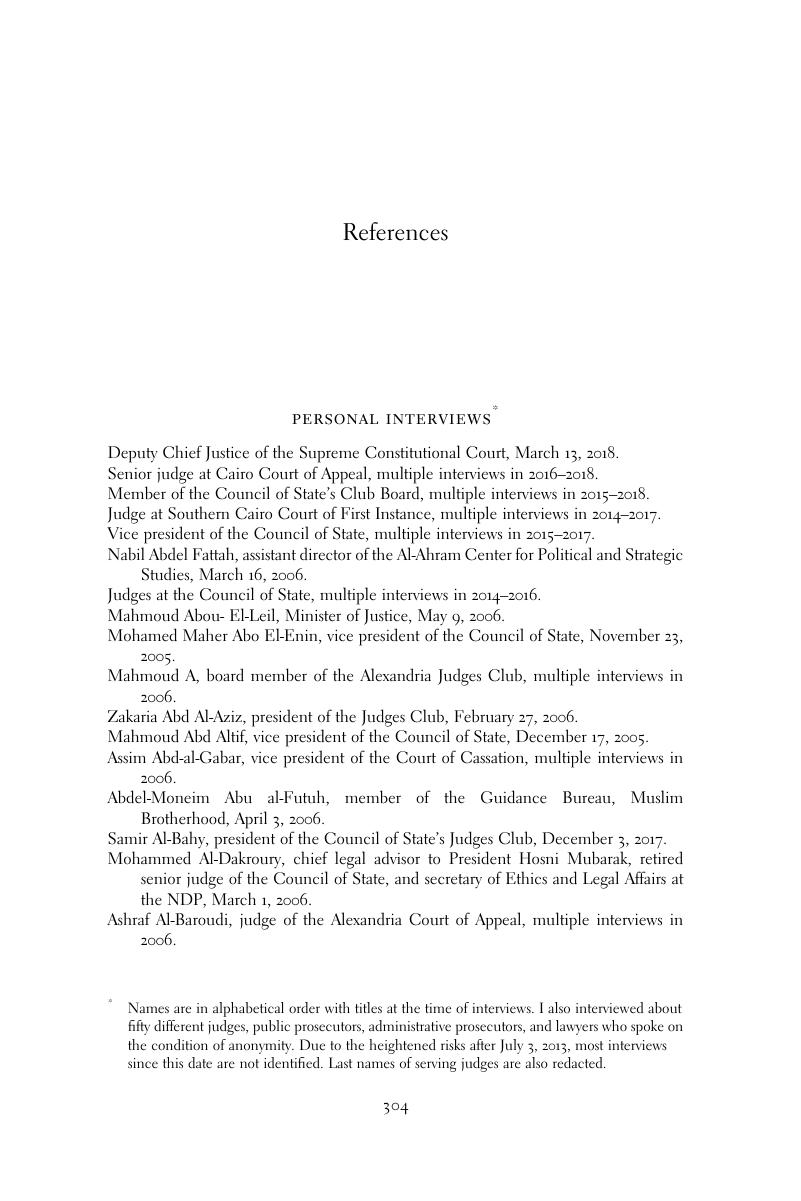 Judges and Generals in the Making of Modern Egypt
Judges and Generals in the Making of Modern Egypt Book contents
- Judges and Generals in the Making of Modern Egypt
- Judges and Generals in the Making of Modern Egypt
- Copyright page
- Contents
- Figures
- Tables
- Acknowledgments
- Abbreviations and Acronyms
- 1 Introduction
- 2 The Historical Legacies and the Institutional Culture of the Egyptian Judiciary
- 3 Nasser’s Egypt
- 4 The Years of Sadat
- 5 Judicial Politics under Mubarak
- 6 The SCAF, the Courts, and Islamists
- 7 Mursi and the Judiciary
- 8 Patricians and Plebeians
- 9 Old Wine in a New Bottle
- References
- Index
- References
References
Published online by Cambridge University Press: 01 February 2019
- Judges and Generals in the Making of Modern Egypt
- Judges and Generals in the Making of Modern Egypt
- Copyright page
- Contents
- Figures
- Tables
- Acknowledgments
- Abbreviations and Acronyms
- 1 Introduction
- 2 The Historical Legacies and the Institutional Culture of the Egyptian Judiciary
- 3 Nasser’s Egypt
- 4 The Years of Sadat
- 5 Judicial Politics under Mubarak
- 6 The SCAF, the Courts, and Islamists
- 7 Mursi and the Judiciary
- 8 Patricians and Plebeians
- 9 Old Wine in a New Bottle
- References
- Index
- References
Summary

- Type
- Chapter
- Information
- Judges and Generals in the Making of Modern EgyptHow Institutions Sustain and Undermine Authoritarian Regimes, pp. 304 - 319Publisher: Cambridge University PressPrint publication year: 2018


